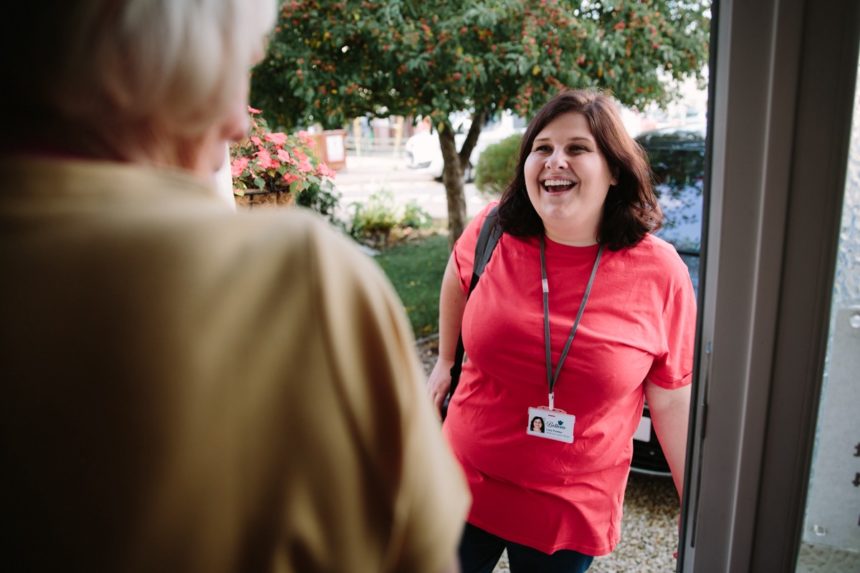Creating Good Jobs: The ‘Future of Work’ Agenda Must Focus on What Workers Need

Last week, Zinc launched a new report that focuses on how innovators and entrepreneurs can approach unlocking opportunities for people hard-hit by automation and globalisation. This report stems from a collaborative programme of work between Zinc and the Autodesk Foundation, a U.S. foundation that supports the design and creation of innovative solutions to the world’s most pressing social and environmental challenges.
- Our perspective and learning on how to approach this complex and challenging agenda can be summarised in four key points:
- We need to spend less time trying to predict an uncertain future
- We need to focus on what workers want from work
- We need to understand workers’ thoughts, feelings and behaviors to help them to adapt successfully
- We need to embrace experimentation
In the report, we discuss what kind of approaches are needed to tackle the impact of previous waves of automation and globalisation, and to adapt to future changes. Our aim is not to advocate for any specific solution(s), but to provide a summary of Zinc’s perspective and learning, generated through research, experimentation, and the input of our network of experts, collaborators and partners.
This report summarises Zinc’s learning about both ‘what matters’ and ‘what works’ in innovations focused on the future of work. It is relevant to individuals and organisations who are committed to helping people to adapt to, and thrive in, the future employment market. It is primarily targeted at innovators, but its content and recommendations are applicable to all those working in policy, impact investment and philanthropy, research, education and training, charities, corporates, entrepreneurship, and beyond who have an interest in this mission.
“At the Autodesk Foundation, we have been grappling with the challenges and opportunities that automation presents to the global workforce since 2017. We partnered with Zinc over the last two years to support their venture building program focused on unlocking opportunities for people and communities left behind by these forces. We felt a wholly new method was needed in the workforce development ecosystem, one that was not unduly reliant on individual worker upskilling or sectoral job creation, which can leave communities vulnerable to the next wave of technological disruption. Zinc intentionally takes a different path by addressing the social and psychological barriers people face in navigating jobs and careers.
We are still at the beginning of a profound learning journey and know that this will require a risk-tolerant approach in order to uncover new or unconventional ways to address the inequities around the future of work. But we believe those of us in philanthropy need to be continuously looking for new ways to address these deep systemic issues.”
Jean Shia, Head of Portfolio & Investment, The Autodesk Foundation
Background to the report
In 2018, Zinc ran a venture-builder programme focused on the mission of unlocking new opportunities for people in places hard-hit by globalisation and automation. The mission attracted a talented cohort of aspiring and experienced entrepreneurs, as well as a diverse network of experts and partners. Working in communities across the U.K., Europe and North America, Zinc and our ventures have, over the last three years, identified and tackled widespread unmet needs that are often overlooked by mainstream narratives around the future of work.
The Autodesk Foundation, the philanthropic arm of Autodesk, Inc., provides risk-tolerant funding, technology, and talent to nonprofits and social enterprises to help them maximize impact. In 2019, the Autodesk Foundation launched and funded a collaborative programme with Zinc, supporting 5 Zinc ventures and commissioning a report to summarise our learning.
Key points from the report
Automation and globalisation are the two of the biggest forces shaping the future of work and our wider society. Work has been changing radically and regularly for centuries. Over the last 200 years, forces of automation and globalisation have brought remarkable gains to the developed world. Though these changes in productivity and trade have increased the average wealth and health of many workers, they have also, clearly, negatively impacted many people, communities and places.
We begin the report by describing the importance and urgency of the challenge, highlighting (i) the potential for forces of automation and globalisation to bring both positive and negative change, and (ii) the inequality of opportunities that exist between people and places, which are likely to be exacerbated by future waves of automation and globalisation.
We then describe Zinc’s perspective and learning on how to approach this complex and challenging agenda, structured around a set of four key points (which are further illustrated through a series of case studies):
- We need to spend less time trying to predict an uncertain future: History has taught us that our predictions about the future are often wrong. In approaching the complex set of challenges around the future of work, we need to move beyond predictions and forecasts.
- We need to focus on what workers want from work: Automation and globalisation involve trade-offs and competition between capital and labor, and between consumers and labor. Economic policies have been skewed to the needs of consumers, often at the expense of workers’ needs and wellbeing. Supporting people who have been, and are likely to be, hard-hit by automation and globalisation means refocusing on workers: creating opportunities that are meaningfully centered on what workers want and need from their jobs in the future.
- We need to understand workers’ thoughts, feelings and behaviors to help them to adapt successfully: Creating the right types of opportunities is important and necessary — but it will not be enough. Given the pace and frequency of change, we need to ensure that people have the skills and will to embrace the associated opportunities. We can draw on the behavioral sciences to understand how to support people through change, focusing on their awareness, self-efficacy, resilience, adaptability, and self-identities.
- We need to embrace experimentation: Relying on necessary ‘top-down’ solutions from governments poses a number of risks and challenges — including the possibility that such solutions will not engage their target group(s). In designing and testing new solutions, humility, inclusivity and experimentation are key in supporting individuals to achieve their goals. And we should be prepared for uncertainty and failure, which characterize most new innovations — and which can gradually lead us to impactful solutions.
Next steps
Zinc will be continuing its work on this agenda — supporting our existing ventures and running new venture-builder programmes with this mission as the focus — over the coming years. We have seen the power of missions to unlock new ecosystems of passionate individuals and organizations — brought together across national, disciplinary and sectoral boundaries. If you are motivated by this agenda and want to collaborate, contribute, or find out more, you can reach out via our website.
Our next venture-builder programme will kick off this October, 2021, and focus on the mission to ensure that every child and young person can develop and maintain good mental and emotional health. If you’re interested in this mission and ways to get involved, you can find out more here.
Join the Zinc community
Stay up to date with all Zinc updates and future posts as part of our fast growing community.
Featured Resources
Impact Report 2023
We started Zinc with the hypothesis that missions are an effective way to attract highly ambitious, talented and experienced groups of innovators, who might not recognise themselves as “classic entrepreneurs” but are ready and able to start a new commercial and successful venture to tackle some of our most pressing societal issues.
The world has overcome the sorts of challenges we face today when it has adopted a mission-based approach to the biggest problems and brought together world-class talent to invent and innovate, e.g: NASA and landing a man on the moon, the LSE blueprinting the British welfare state, or the Gates Foundation aiming to eradicate diseases.
On this basis and assumption, we designed Zinc as a new mission-based Venture Builder — a place where global talent, ‘impact makers’, can join to experiment and develop new solutions to our most pressing societal issues.
To Eliminate Environmental Threats to Our Health
Environmental health threats pose a grave danger to human health and well-being, causing suffering to individuals and communities worldwide. These threats, which include chemical pollution, climate change, and biological hazards, cause acute and chronic diseases and exacerbate existing health conditions.
To protect those we care about, we must tackle the causes of environmental degradation, shield people from the consequences of environmental harm, and, where protection fails, we must mitigate the health impacts they suffer.
This demands action to improve all aspects of our environment: soil, food, air, water, and the built environment. It requires us to focus on every aspect of human health to reduce suffering.
Entrepreneurship and technology are powerful means to tackle these challenges. That’s why we are backing 70 founders to build innovative companies addressing this mission.


